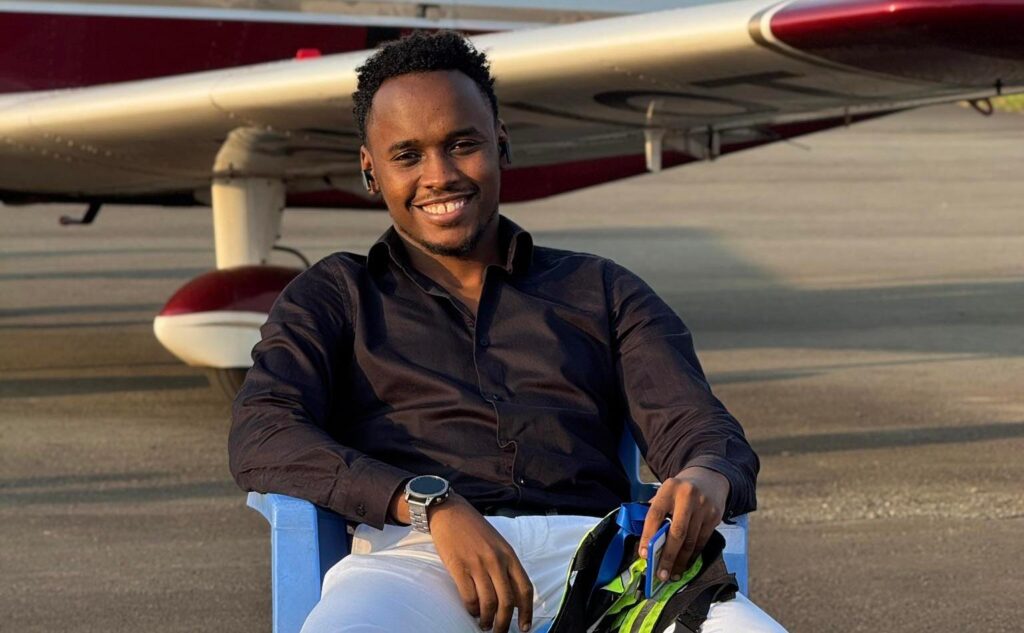Khalif Kairo, once a poster child for youthful success in Kenya’s aviation industry, has found himself at the center of a startling turn of events one that starkly contrasts triumph and turmoil. In a deeply personal social media reflection, Kairo remarked, “Life is funny. April ya last year I was in India, flying first class – April ya this year I was in jail,” prompting widespread public introspection and debate.
Just a year ago, Kairo was soaring literally and figuratively. As the founder of Kairo Aviation, a firm known for aircraft maintenance and sales, he was celebrated as a trailblazer in a niche industry. His luxury trips, especially a widely admired first-class journey to India, served as proof of the rewards of ambition and innovation. On social media, Kairo became a beacon of hope for young entrepreneurs, flaunting a lifestyle many aspired to achieve.
But the shine of success can fade fast.
In April this year, Kairo’s fortunes took a dramatic downturn when he found himself behind bars. While the exact details remain under wraps, reports indicate that his arrest stemmed from a business-related dispute. His incarceration, though brief, marked a jarring deviation from his high-flying image. The news broke not through official channels but via his own Instagram post shared after his release, catching many of his followers and the Kenyan business community by surprise.

Reactions have been mixed. Some sympathize with Kairo, seeing his journey as a cautionary tale of the pressures and pitfalls that come with entrepreneurship. Others have questioned the decisions that may have led to his legal troubles.
Since his release, Kairo has noticeably retreated from his once-flamboyant online presence. His recent posts are quieter, more reflective, touching on resilience, lessons learned, and the human side of ambition.
Kairo’s story is a stark reminder that success, especially in high-stakes industries, can be fragile. His experience underscores the importance of not only building businesses but also managing risks and relationships with care. Whether this marks a turning point or a downfall remains to be seen but one thing is clear: Khalif Kairo’s journey continues to provoke conversation and reflection.

